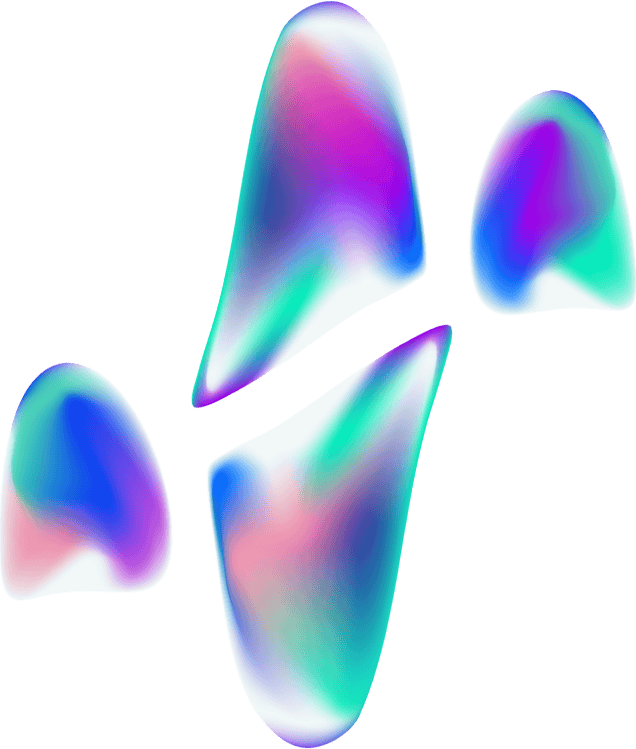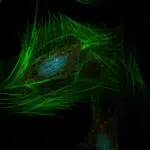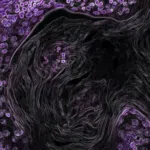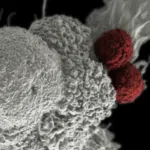At Alloy Therapeutics our goal is to empower drug discovery teams with technologies and services enabling them to make the best medicines for patients. Our company started this work in antibodies with a long-term plan to expand innovation to “adjacent modalities” that require similar expertise and could leverage much of our core antibody discovery, protein engineering, analytics, manufacturing, informatics, and computational infrastructure. Many important innovations come at the intersection between one or more disciplines collaborating nimbly across silos. As a result, we recognized how scientists working across other modalities could benefit from our model of democratizing access and augmenting discovery teams’ capacity.
In particular, TCR-based therapeutics hold great promise to improve immunotherapies, as T cells are key players in adaptive immune response leading to curative effects in cancers. They are also critical in addressing unmet medical need by being able to target the 90% of proteins that are not expressed on cellular surfaces and therefore cannot be targeted by conventional monoclonal antibody-based medicine.
We envision a world where in the next 15 years we see a growth in the use of engineered TCRs and TCR mimics as a validated therapeutic format in the same way that we have seen the growth and maturity of the antibody field in the last 15 years. The underlying technologies necessary to sequence, discover, engineer, manufacture, and develop TCR-based therapeutics is only now coming into the mainstream—similar to the maturation of the antibody discovery field in the early 2000s. With the approval of Immunocore’s tebentafusp-tebn (KIMMTRAK®) earlier this year, along with many other T cell engagers and TCR mimics in the clinic, we are on the forefront of a wave of innovation harnessing the power of the human immune system to recognize and modulate novel drug targets.
Through our launch of Keyway TCR Discovery, Alloy is committed to developing and sharing the platforms and services necessary to empower the global scientific community to achieve this vision of unlocking the power of drugging Human Leukocyte Antigen-peptide (HLA-peptide) complexes presenting novel therapeutic targets.
Historically, several factors inhibit the clinical development of TCR-based therapeutics: technical difficulties with Human Leukocyte Antigen (HLA) restricted peptide (pHLA) target discovery and validation, limited tools in discovery TCR and for the assessment and improvement of its binding specificity and affinity, and insufficient clinical validation of specific therapeutic formats.
Pre-competitive, enabling technologies are critical for the discovery and development of next generation therapies, but are often not the therapies themselves. For example, advances in sequencing have led to breakthroughs in new medicine, but the sequencing itself is not the final drug product. As another example, the microscope and all subsequent advances in microscopy are critical to drug discovery and development, but microscopy is not the therapeutic itself. Similarly in the antibodies field, the ATX-Gx™ transgenic mouse platform is not the medicine a patient needs to survive, but the suite of 8 ATX-Gx mice (and growing) can be very useful in discovering human antibodies without costly economics or target gatekeeping.
These are platforms that can be used broadly by all scientists to generate unique composition of matter IP that can be advanced through the clinic by individual companies. However, pre-competitive platforms are historically underfunded by our industry because of limitations of the venture capital model that is appropriately constrained by a 10-year fund life and a legitimate focus on achieving investor returns to justify investment risk. All value in our industry ultimately comes from the value of an approved drug that is provided to a patient, and therefore most venture-backed biotech companies are focused on discovering, developing, and ultimately selling valuable medicine to patients. In those cases, the enabling technologies are useful, sometimes necessary, and at the end of the day not the ultimate value driver for the venture-backed biotech company—despite being patented, owned, and controlled by the venture-backed biotech company. Often the only way to access this technology before the 20-year patent life expires is through the acquisition of the company. Of course, only one Top 50 pharma company can acquire a company, leaving the other 49 out in the cold. Wouldn’t it be better if everyone could access this pre-competitive, enabling technology with the appropriate level of exclusivity?
We launched Keyway™ TCR Discovery to address these challenges and democratize access to pre-competitive TCR-based therapy discovery, first through our discovery services offering and later through transferring our technology platforms as part of an Innovation Subscription or a bespoke license. Given our rich history in antibody discovery, we will first work in T-cell receptor mimics (TCRm), which are antibodies that combine the capacity of a T cell to target intracellular antigens while retaining other traditional qualities of antibodies. Our CEO of Keyway and Alloy’s Chief Technology Officer for TCRs is Dr. Dongxing Zha, who previously led ORBIT platform, part of The University of Texas MD Anderson’s Cancer Moon Shots program, where he oversaw the team that has advanced the first TCRm antibody to the clinic in treatment of various hematological malignancies.
Keyway’s integrated workflow combines best practices for pHLA reagent generation, discovery and selection of TCRs and TCRms, engineering of affinity and specificity, and finally construction and testing of bispecific molecules and cell therapies. Our Keyway offering will also be compatible with Alloy platforms spanning cell engagers and chimeric antigen receptors T cells (CAR-T), enabling our partners to develop innovative new therapeutic combination modalities at accessible terms.
In addition to our in-house capabilities, Keyway will collaborate broadly with other ecosystem partners for TCR discovery by integrating with other great technology and service providers, for things like generating antigens like stable MHC Class II peptide complexes or sources of genomic T cell repertoire data. This collaborative approach is necessary to fully arm discovery teams with the pre-competitive tools they need to discover the best TCR-based therapeutic candidates.
Through early work with our partners, we have generated new TCRm assets using our proprietary discovery and engineering platforms and protocols. This year, we will continue to advance our discovery offering for engineered TCR formats, utilizing our proprietary CD3 binder sets originally discovered as part of our antibody efforts. We aim to empower discovery teams across biotech and pharma looking to further unlock the promise of immunotherapy in treating disease








